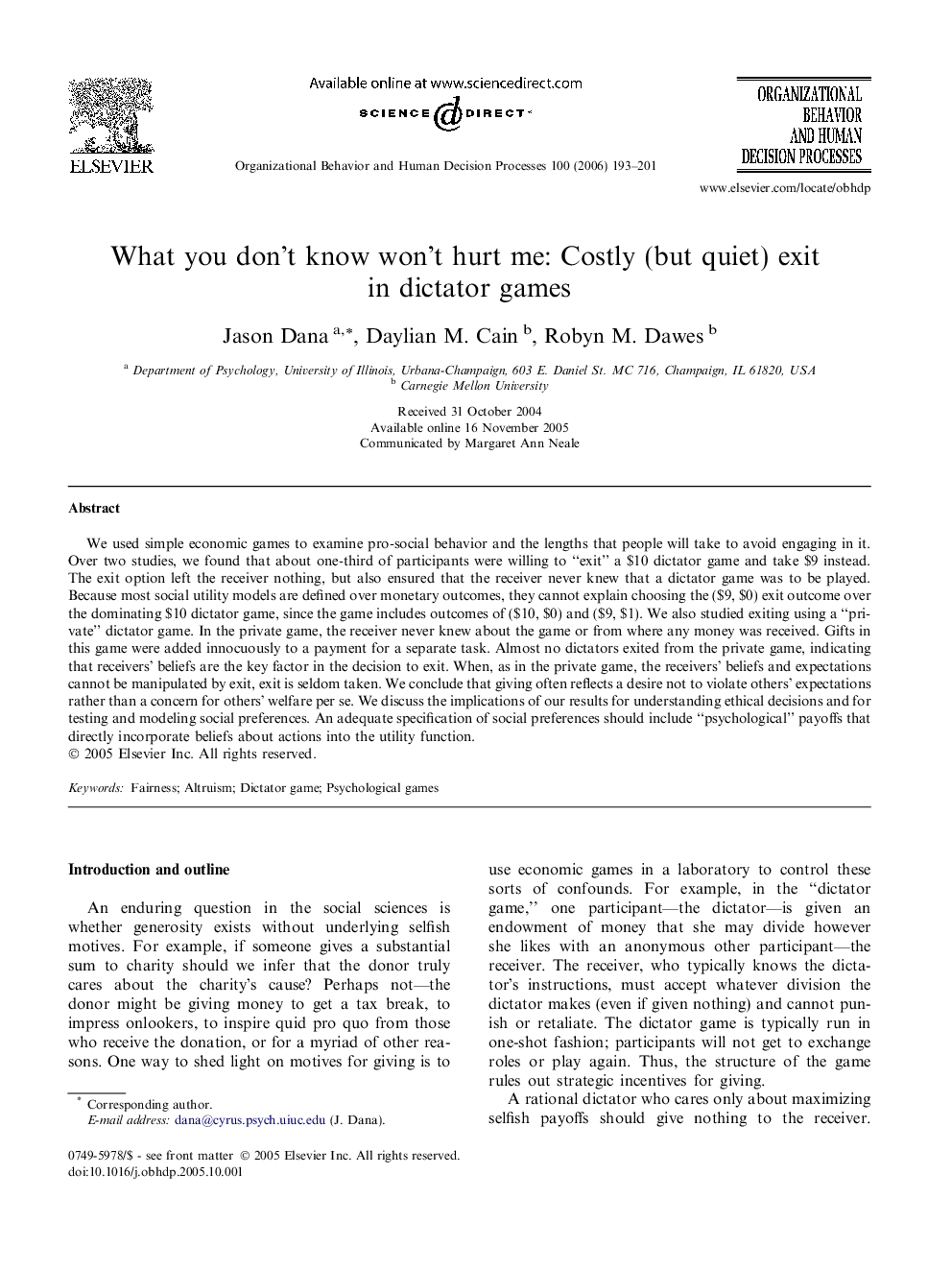| کد مقاله | کد نشریه | سال انتشار | مقاله انگلیسی | نسخه تمام متن |
|---|---|---|---|---|
| 889014 | 1471858 | 2006 | 9 صفحه PDF | دانلود رایگان |

We used simple economic games to examine pro-social behavior and the lengths that people will take to avoid engaging in it. Over two studies, we found that about one-third of participants were willing to “exit” a $10 dictator game and take $9 instead. The exit option left the receiver nothing, but also ensured that the receiver never knew that a dictator game was to be played. Because most social utility models are defined over monetary outcomes, they cannot explain choosing the ($9, $0) exit outcome over the dominating $10 dictator game, since the game includes outcomes of ($10, $0) and ($9, $1). We also studied exiting using a “private” dictator game. In the private game, the receiver never knew about the game or from where any money was received. Gifts in this game were added innocuously to a payment for a separate task. Almost no dictators exited from the private game, indicating that receivers’ beliefs are the key factor in the decision to exit. When, as in the private game, the receivers’ beliefs and expectations cannot be manipulated by exit, exit is seldom taken. We conclude that giving often reflects a desire not to violate others’ expectations rather than a concern for others’ welfare per se. We discuss the implications of our results for understanding ethical decisions and for testing and modeling social preferences. An adequate specification of social preferences should include “psychological” payoffs that directly incorporate beliefs about actions into the utility function.
Journal: Organizational Behavior and Human Decision Processes - Volume 100, Issue 2, July 2006, Pages 193–201